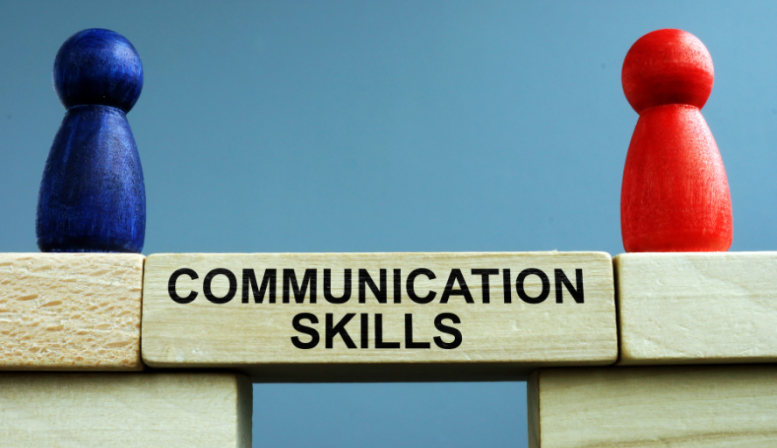The Significance of Communication Skills in Writing

Communication is the cornerstone of human interaction, allowing us to express ideas, emotions, and information with one another. In the modern world, writing is used extensively, from academic and professional settings to personal and creative expression.
However, writing effectively is not just about stringing words together; it requires strong communication skills. In this article, we delve into why those skills are crucial in writing and explore how they impact different facets of written communication.
Clarity and understanding
The experts at Eduboard claim that one of the primary reasons communication skills are vital in writing is to ensure clarity and understanding. When you write, your goal is to convey information and to ensure that your readers comprehend it fully.
Effective communication skills enable you to express your ideas in a clear, concise, and organized manner. These are essential in both academic and professional contexts.
-
Eliminating ambiguity: Effective writers choose words and sentence structures that leave no room for misinterpretation. This skill is invaluable in legal documents, scientific research papers, and business reports, where precision is paramount.
-
Organizing ideas: Communication skills extend to organizing ideas in writing. Skilled writers know how to structure their content logically, ensuring that readers can follow the flow of information easily. This is key in essays, articles, and other forms of expository writing.
-
Tailoring to the audience: Whether you're writing for a scholarly audience, a casual blog readership, or a professional report, it’s important to understand your audience's needs and expectations. This also applies to public speaking, especially at professional events.
Persuasiveness
In many instances, writing serves as a persuasive tool. Whether you are trying to convince your professor about an argument, entice customers to buy a product, or rally support for a cause, compelling communication makes a significant difference.
-
Building convincing arguments: Persuasive writing relies on evidence-based and compelling arguments. In turn, strong communication skills are essential for articulating these arguments effectively using rhetorical devices and persuasive language.
-
Engaging the reader: Persuasion is not just about presenting facts; it's about captivating the reader emotionally and intellectually. Effective communication skills enable writers to craft narratives that resonate with their audience, making them more likely to agree with the message.
-
Addressing counterarguments: Persuasive writing also involves preparing for counterarguments and potential objections. Anticipate opposing views and communicate your responses well to showcase your understanding and mastery of the topic.
Creating impactful stories
Storytelling is a powerful form of communication. Whether you are writing a novel, a screenplay, or a personal essay, the ability to tell a compelling story depends on strong communication skills.
-
Emotional connection: Stories are a medium for connecting with readers on an emotional level. Effective communication skills allow writers to evoke emotions, create empathy, and draw readers into the narrative.
-
Character development: Developing relatable and multidimensional characters in fiction or well-defined personas in marketing content requires a deep understanding of human behavior and communication patterns.
-
Evoking imagination: Good writers can transport their readers to different worlds or scenarios through descriptive language and vivid imagery. This is a testament to their skills in communicating the essence of a place, character, or experience.
Building relationships
In business and personal settings, writing plays a vital role in building and maintaining relationships. Whether it's a thank-you note, an email to a colleague, or a letter to a potential client, how you communicate impacts how others perceive and respond to you.
-
Professionalism: Well-crafted written communication signals professionalism and attention to detail. Sloppy or unclear writing can have the opposite effect, damaging your reputation.
-
Conflict resolution: Effective communication skills are crucial in resolving conflicts through written correspondence. Knowing how to express concerns, offer solutions, and maintain a respectful tone marks the difference between a successful resolution and an escalating dispute.
-
Networking and social skills: Personal relationships can also benefit from strong communication skills in writing. Whether networking, making new friends, or maintaining connections, expressing yourself clearly and engagingly enhances social interactions.
Global communication
In our interconnected world, writing transcends geographical and cultural boundaries. Whether you're writing for an international audience or collaborating with individuals from diverse backgrounds, communication skills are even more critical.
-
Language adaptability: Skilled writers can adapt their language and writing style to cater to different linguistic preferences and cultural nuances. This adaptability is essential when addressing a global audience or working in multicultural teams.
-
Translation and localization: Understanding the subtleties of language and cultural references is crucial in translation and localization efforts. This helps preserve the essence of the original message so it resonates with the target audience.
-
Bridging communication gaps: In multicultural settings, communication skills can bridge language and cultural gaps. This fosters understanding and cooperation among people with diverse backgrounds.
How to demonstrate oral and written communication
To demonstrate both oral and written communication skills effectively, consider the following strategies:

-
Practice active listening: Effective oral communication often begins with active listening. Pay attention to the speaker, ask clarifying questions, and demonstrate your understanding by summarizing their points.
-
Master nonverbal communication: Nonverbal cues, such as body language and facial expressions, play a significant role in oral communication. Be mindful of these signals to convey openness and engagement.
-
Speak clearly and confidently: Articulate your words clearly and maintain a confident tone. Speak slowly, as this can help understanding.
-
Organize your thoughts: Before writing or speaking, organize your thoughts. Create an outline or structure to ensure your message flows logically.
-
Use appropriate language: Tailor your language and tone to your audience. In professional settings, use formal language. In casual conversations, adapt a more relaxed style.
-
Edit and proofread: Always edit and proofread your content. Check for grammar and spelling errors to maintain professionalism. If you require assistance, consider utilizing Essays Advisor to find the most suitable service.
-
Seek feedback: Actively seek feedback from peers, mentors, or colleagues. Constructive criticism can help you refine your communication skills.
-
Expand your vocabulary: A rich vocabulary boosts your ability to express ideas. Read widely and learn new words to diversify your language.
-
Practice public speaking: If public speaking is essential for your profession, consider joining a public speaking club or taking courses to build confidence and refine your speaking skills.
-
Use technology wisely: Familiarize yourself with relevant software and tools such as email and video conferencing to enhance your written and oral communication skills.
Conclusion
In conclusion, communication skills are the foundation of effective writing, whether you are aiming for clarity, persuasion, storytelling, relationship-building, or global communication.
In addition, writing is not merely a mechanical process of putting words on paper. It is a dynamic and multifaceted form of expression that relies on your ability to convey ideas, engage readers, and connect with audiences on various levels.
As we navigate an increasingly digital and interconnected world, the importance of communication skills in writing becomes even more evident. Whether you're a student, professional, creative writer, or someone who simply wants to communicate effectively, honing your skills will elevate your writing to new heights.
So, embrace the power of effective communication, watch your words come to life on the page, and make a lasting impact on your readers and the world.




